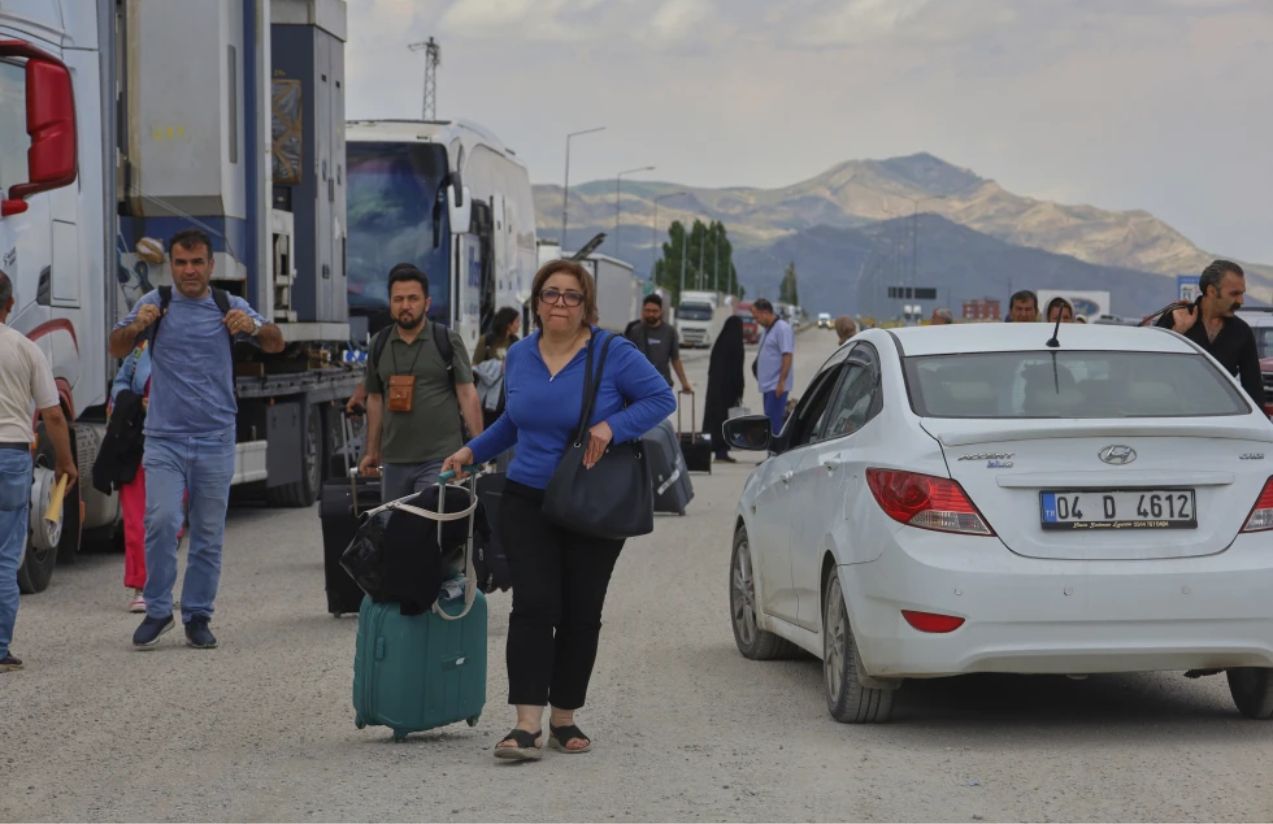At the Gurbulak-Bazargan border crossing between Turkey and Iran, Shirin Talebi anxiously awaited the arrival of her children and grandchildren from Tehran on Monday. Her family is seeking temporary refuge in Turkey, planning to stay for a month or two while the armed conflict between Iran and Israel persists.
“I’m here for safety. They’re bombing. My children have young kids,” Talebi said, having just arrived from the Iranian city of Urmia. “Hopefully this will end in a month or two so we can return home.”
Turkey, which shares a 569-kilometer (353-mile) border with Iran, has expressed deep concern over the escalating hostilities between the two nations. Turkish authorities fear that a prolonged conflict could threaten national security, disrupt energy supplies, and trigger a new wave of refugees.
The situation intensified last Friday when Israel launched a surprise attack targeting senior Iranian military officials, nuclear enrichment facilities, and key scientists. Israel defended the operation as a necessary measure to prevent Iran from advancing toward the development of a nuclear weapon. The assault came just two days before Iran and the United States were scheduled to resume negotiations over Tehran’s nuclear program.
In response, Turkish President Recep Tayyip Erdogan has offered his country as a mediator to de-escalate tensions and revive diplomatic dialogue. Erdogan held phone calls with both U.S. President Donald Trump and Iranian President Masoud Pezeshkian to discuss the crisis.
Since the outbreak of hostilities, there has been a noticeable increase in the number of Iranian citizens arriving in Turkey. However, Turkish authorities have denied reports circulating on social media about a mass refugee influx. “There is no unusual movement, congestion, or irregular crossings at the Kapıkoy and Gurbulak border gates,” stated Turkey’s Presidential Communications Office.
Turkish policy currently allows Iranians to enter the country visa-free for up to 90 days for tourism purposes—an arrangement that has enabled the recent wave of arrivals.
At the busy Gurbulak border crossing, bus driver Ferit Aktas noted a sharp rise in passengers arriving from Iran. “A week or ten days ago, I was transporting maybe three to five Iranians per trip, mostly for shopping or tourism. Now, I’m carrying at least 30 people a day,” he said. “Many of them tell me, ‘We’re no longer safe there; we have no choice.’ Most are trying to reach Europe through Turkey.”
Still, not everyone is fleeing out of fear. Mejid Dehimi, also from Urmia, crossed the border for a brief vacation—not to escape the conflict. “We’re not afraid of death,” he said defiantly. “We’ll stand against Israel until our last breath, as long as we live.”

